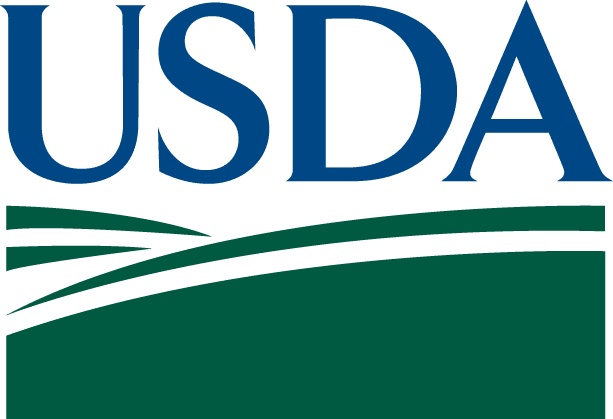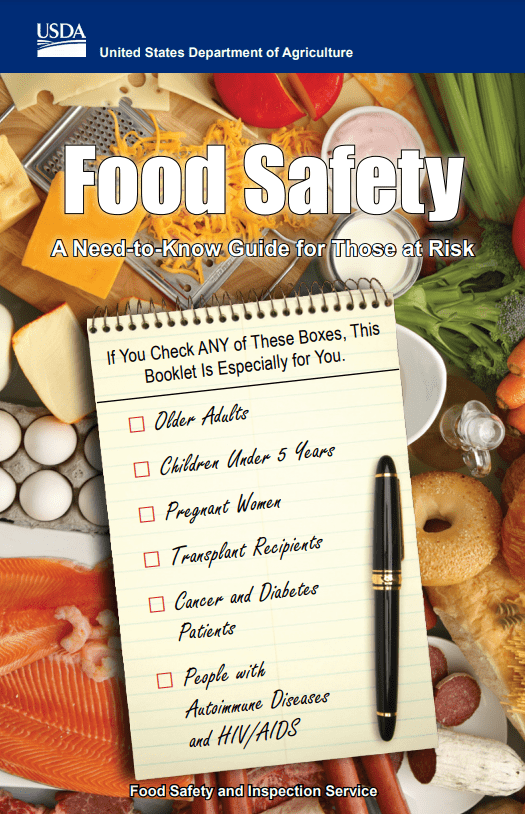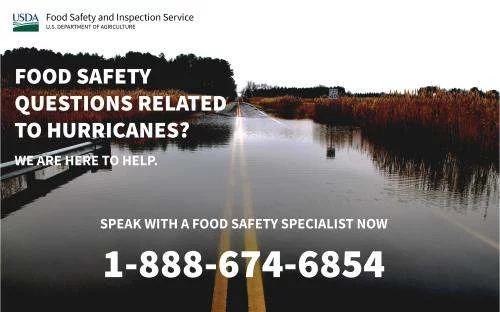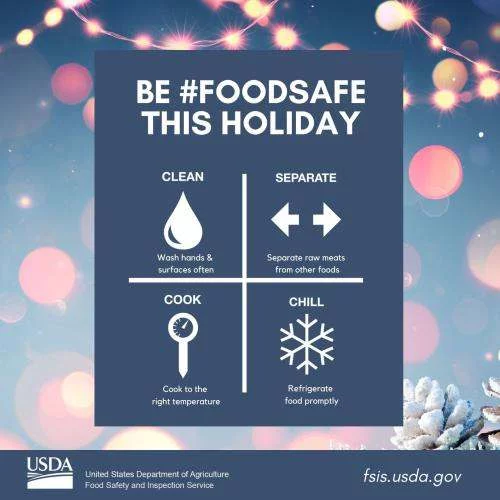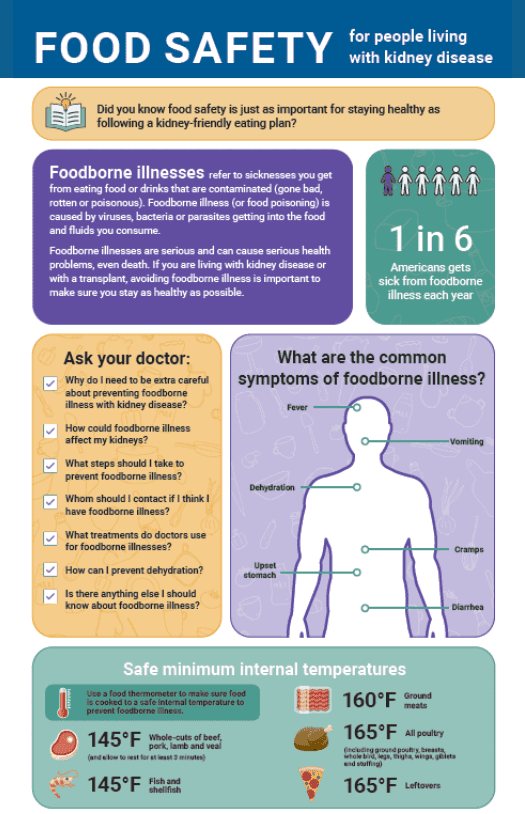
Food safety for people living with kidney disease
Foodborne illness (or food poisoning) is caused by bacteria, viruses or parasites getting into the food and fluids you consume. Bacteria, viruses and parasites that cause foodborne illnesses are also known as foodborne pathogens. According to the Centers for Disease Control and Prevention (CDC), up to 48 million people in the U.S. will get a foodborne illness each year. As you start your journey of kidney-friendly eating, it is important to be aware of how to handle food safely to reduce your risk of foodborne illness.
If you have kidney disease, your kidneys do not work as well as they should, and you may have a weakened immune system. This makes it harder for your body to fight off infections, which can lead to more serious, and sometimes deadly, effects of foodborne illness. It is important to learn and practice safe food handling so that you can lower your risk of getting sick.
Below are steps you can take to handle your food safely and reduce your risk of foodborne illness.
The four basics steps to food safety

1. Clean
Wash hands and surfaces often.

2. Separate
Separate raw meat and poultry from ready-to-eat food.

3. Cook
Cook food to the right temperature.

4. Chill
Chill raw meat and poultry, as well as cooked leftovers, promptly (within 2 hours).
Safe food handling
1. Follow the four basic steps to food safety
- Clean
- Seperate
- Cook
- Chill
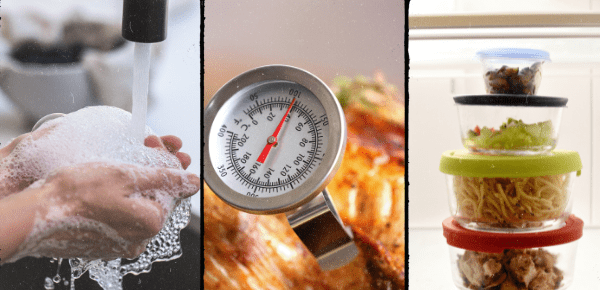
2. Know what foods are higher risk
- Raw or uncooked meat or poultry
- Raw or uncooked fish or shellfish; food containing raw or undercooked seafood; partially cooked seafood
- Raw (unpasteurized) milk
- Foods with raw or undercooked eggs: raw cookie dough, homemade eggnog, homemade Cesar salad dressing
- Raw sprouts: alfalfa, bean or other sprouts
- Unwashed fresh vegetables
- Soft cheeses made from raw milk: feta, brie, queso fresco
- Hot dogs, deli meats and luncheon meats that have not been reheated
- Raw, refrigerated pâtés or meat spreads
3. Shop safely
- Buy non-refrigerated items first, then refrigerated or frozen items
- Never choose meat or poultry in packaging that is torn or leaking.
- Do not buy food past the “sell-by,” “use-by” or other expiration dates.
4. Store leftovers properly
- Throw away any food left out at room temperature for more than 2 hours (1 hour if the temperature in your area is above 90°F)
- Place food into shallow containers and put in the refrigerator or freezer right away for rapid cooling
- Use most cooked leftovers within 3 to 4 days
- Reheat leftovers to 165°F
Food safety guides
AKF & USDA food safety resources
Hurricane season has started and to make sure you are prepared, the American Kidney Fund’s Kidney Kitchen® collaborators, USDA’s Food Safety and Inspection Service (FSIS) encourage you to consider making a “hurricane plan” for food safety.
The holidays are a great time to get together with family and friends. For many of us, these seasonal gatherings often include food. Did you know that proper food preparation and storage is just as important as the ingredients that go into your dishes?
If you are like Ross Geller, you know that leftovers are one of the best parts of the Thanksgiving meal. Before serving tomorrow’s feast, review kidney-friendly tips from Kidney Kitchen partners USDA Food Safety that will keep your leftovers safe to eat.
Check out this blog to learn about the steps you can take to protect you and your family from foodborne illness.
Webinar: Preparing for an emergency: What you need to know about kidney disease & food safety
Watch this webinar to learn about food safety in the event of an emergency.
Webinar: Food Safety and Kidney Disease
Watch this webinar about how to safely cook, handle and store food properly.
Preparing for an emergency: What you need to know about kidney disease & food safety
Webinar: Food Safety and Kidney Disease
Watch this webinar about how to safely cook, handle and store food properly.
Additional resources
- Call the USDA Meat and Poultry Hotline at 1-888-MPHotline (1-888-674-6854). They are available Monday through Friday from 10:00 a.m. to 6:00 p.m. Eastern Time.
- Email questions to MPHotline@usda.gov
- Live chat via “AskUSDA” : available Monday through Friday from 10:00 a.m. to 6:00 p.m. Eastern Time
- Access food safety information 24/7 via “AskUSDA”
